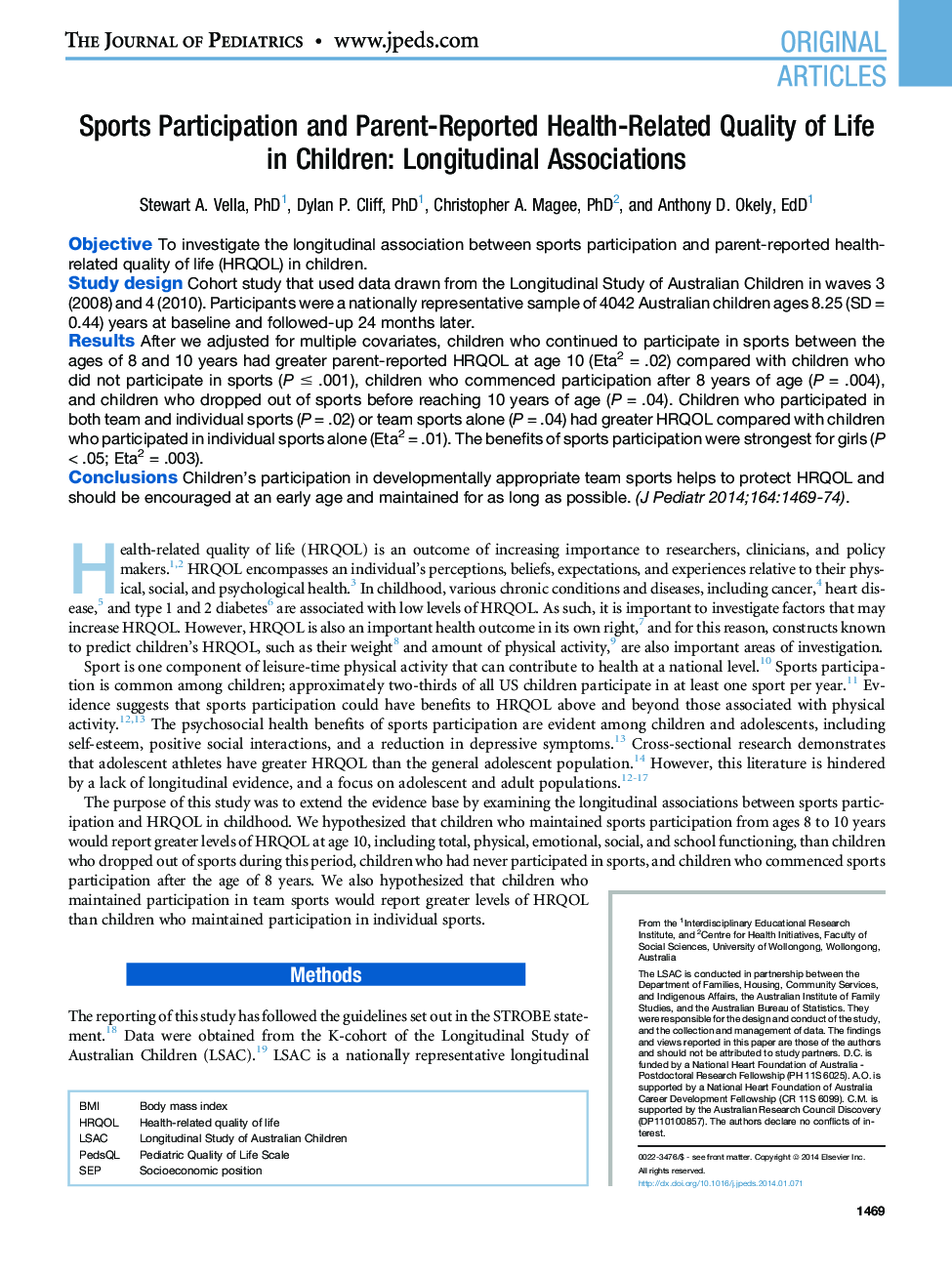| Article ID | Journal | Published Year | Pages | File Type |
|---|---|---|---|---|
| 6220708 | The Journal of Pediatrics | 2014 | 6 Pages |
ObjectiveTo investigate the longitudinal association between sports participation and parent-reported health-related quality of life (HRQOL) in children.Study designCohort study that used data drawn from the Longitudinal Study of Australian Children in waves 3 (2008) and 4 (2010). Participants were a nationally representative sample of 4042 Australian children ages 8.25 (SD = 0.44) years at baseline and followed-up 24 months later.ResultsAfter we adjusted for multiple covariates, children who continued to participate in sports between the ages of 8 and 10 years had greater parent-reported HRQOL at age 10 (Eta2 = .02) compared with children who did not participate in sports (P ⤠.001), children who commenced participation after 8 years of age (P = .004), and children who dropped out of sports before reaching 10 years of age (P = .04). Children who participated in both team and individual sports (P = .02) or team sports alone (P = .04) had greater HRQOL compared with children who participated in individual sports alone (Eta2 = .01). The benefits of sports participation were strongest for girls (P < .05; Eta2 = .003).ConclusionsChildren's participation in developmentally appropriate team sports helps to protect HRQOL and should be encouraged at an early age and maintained for as long as possible.
